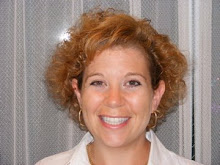Today I am tired. I’ve been under a lot of stress vis a vis the Third Culture Kid Seminar, planning the Bali trip, Passover fast-approaching, (I’m doing it for the kids’ school too – 150 kids for a mock-seder) the JCC rabbi search and the charity essay contest on which I’m working. But the seminar today made so many relevant points that I want to mention a few of them so that perhaps the people around me will understand where I’m coming from.
The talk was by psychologist Elizabeth Gillies. She’s is a British woman who has been an expat in various countries for her whole adult life. She works with the local English-language counseling center and with international schools across Tokyo. Here are a few things that she pointed out:
First: the definition of a Third Culture Kid is any person under the age of 18 who has grown up in a culture other than that of either of his or her parents. Some researchers might add that the Third Culture Kid takes the best of the culture of his or her parents and the best of the “host” culture and then creates his or her own “third” culture.
- There are many positive aspects of being a Third Culture Kid, according to the research. Among them are:
1. Being smart, alert, and globally aware
2. Mature, sensitive and excellent listeners
3. Tolerance and cross-cultural understanding
4. Flexible and open to change
5. High achieving - Third Culture Kids are more likely to have an intact family where both parents have advanced degrees. Statistically the family moves for the job (government, military, missionary, business) of the father. Often the mother is a “trailing spouse” with perhaps her own issues surrounding that term.
- The father for whom the family moved quite often has a high-level job and works long hours. Sometimes there are issues integrating him into the family after business trips or even on the weekend when he hasn’t been around all week. Patience is mandatory!
- There are many drawbacks to being a Third Culture Kid. Among them are:
1. They feel “different”
2. They gravitate to those like themselves
3. Delayed adolescence
4. Migratory instinct
5. Rootlessness, restlessness
6. Unresolved grief - Adolescence is a time when kids typically rebel against parents as a way of asserting independence. In the case of the TCK, often they don’t feel the need to do it until much later – perhaps after they move out of their parents’ house even. It’s about identity separate from the family unit. The opportunities to rebel in a “normal” fashion are not present in the culture that is not the “home” culture. In addition, many TCKs have a lot of independence due to location and/or maturity, so that there’s not as much to rebel against.
- Grief can be a large part of the TCK experience, unfortunately. The experience of leaving home and leaving friends can be traumatic. The transitory nature of the communities in which we live can cause grief with the constant loss of friends to new assignments. Teaching the kids about grief and that it’s normal to be sad is part of our job in parenting TCKs.
- Resilience can be taught. There is such a thing as “the new normal” – and that’s what we focus our energies on achieving, even as many of our friends leave and rotate.
- A common thread for TCKs is that they “feel” different from the rest of the kids they meet in their home countries. They often feel that they no one truly “gets” them. The same goes for adults who live in a foreign country.
- Often the extended families of expats are thousands of miles away and in varying time zones which make communications difficult so the nuclear family becomes the focus.
- Research shows that a family living abroad is necessarily more interdependent and tight-knit than the typical family living in their home culture. That is not to say that we don’t know some families with amazingly close nuclear families in the U.S. – it’s just to point out that many expat families don’t have the extended family around on which to rely, and often rely more on each other. This is also not to make light of our extended family.
- Our children need their extended family relationships to be strong and stable. This was a big point of the seminar. We love the fact that we can call you and go to you in the summer. It makes the kids feel more grounded and in touch with their own culture.
- Though we call Tokyo “home,” TCKs need a sense of home that is beyond Japan. For us it’s obviously America – we are American after all is said and done. For this we rely on our extended family and fantastic friends. Friends are a stabilizing force for our kids and they need to know that the people they loved and cared about when we lived there are still there loving them and caring about them. We are lucky that we have so many people who do love us and care for us.
- TCKs need to connect with people like themselves and friends that they’ve had in Japan (or other host culture) who have moved away.
- Whatever we do, we are doing our best. It is hard for you to understand the ups and downs of our particular life and we appreciate that you try.
These are the main points of what I took away from the seminar today. We’re going to have a follow-on one about the idea of resiliency in the coming months. I hope it’s as successful as the one today.





















